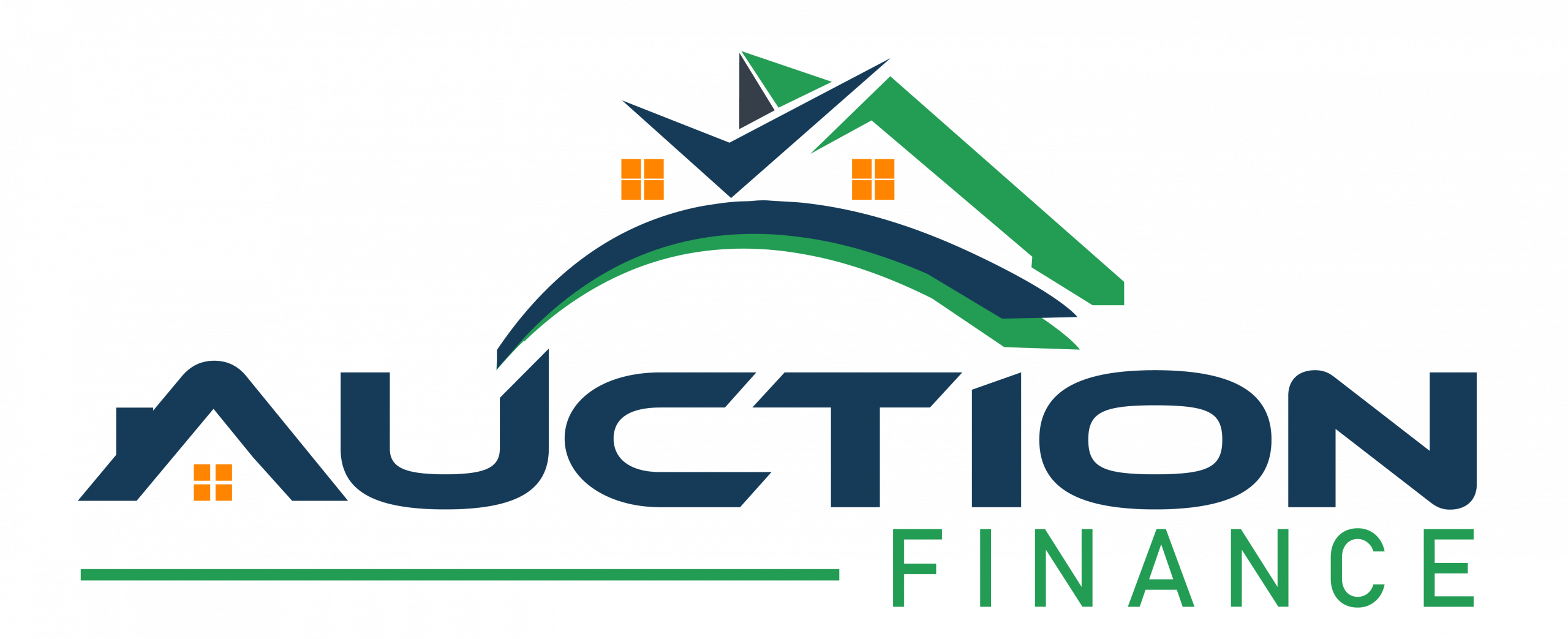Real-world auction finance success stories provide invaluable insights into how savvy property investors use strategic borrowing to build wealth and expand their portfolios. These detailed case studies demonstrate practical strategies, highlight common pitfalls to avoid, and showcase the transformative potential of well-executed auction finance strategies in today’s UK property market.
Understanding how successful investors navigate auction finance challenges, structure their deals, and execute exit strategies provides actionable insights for both newcomers and experienced property investors looking to optimize their auction investment approach.
Major Case Study 1: The Portfolio Diversification Master Class
Background: Sarah Thompson, a London-based property investor with five years of buy-to-let experience, recognized that her portfolio lacked diversification. Previously focused on residential properties within a 20-mile radius of her home, she wanted to expand geographically and explore commercial opportunities available through auction channels.
The Challenge: Sarah’s existing portfolio was concentrated in South London residential properties. She identified opportunities in Manchester and Birmingham commercial markets but faced geographic and sector knowledge limitations.
The Strategy: Sarah partnered with a specialist auction finance broker to establish a £500,000 revolving bridging facility. This pre-approved arrangement allowed her to bid confidently on properties across the UK, with funds available within 5 working days of auction success.
Implementation Details:
- Secured bridging facility at 0.7% monthly with 2% arrangement fee
- Focused on mixed-use and commercial properties in emerging areas
- Conducted thorough due diligence using local property professionals
- Planned 6-month average holding periods before refinancing
The Remarkable Outcomes: Over 18 months, Sarah successfully acquired six properties across Manchester, Birmingham, and Leeds. Average acquisition cost was £280,000 per property, with total investment of £1.68 million. Post-refinancing valuations averaged £320,000 per property, creating immediate equity of £240,000 across the portfolio.
Key Success Factors:
- Pre-arranged finance eliminated bidding uncertainty
- Geographic diversification reduced portfolio risk
- Professional local support ensured quality due diligence
- Clear exit strategies facilitated smooth refinancing
Financial Results: Total portfolio value increased by £420,000, with rental yields averaging 8.2% across all properties. Sarah’s investment approach generated both immediate equity gains and enhanced long-term cash flow.
Major Case Study 2: The Chain-Breaking Champion
Background: Mark Williams, a Bristol-based investor, faced a common dilemma that threatens many property deals. He discovered a perfect auction opportunity – a Victorian commercial building with planning permission for residential conversion – but his existing property remained unsold due to his buyer’s mortgage complications.
The Challenge: The commercial property offered exceptional potential: purchase price £380,000, post-conversion value estimated at £520,000, but Mark’s existing property sale was delayed indefinitely. Traditional financing would require waiting for his sale completion, likely missing the auction opportunity.
The Strategic Solution: Mark utilized an open bridging loan structure, borrowing £400,000 against both his existing property (as security) and the new acquisition. This approach provided complete flexibility on repayment timing while enabling immediate action on the auction opportunity.
Implementation Process:
- Secured £400,000 open bridging facility at 0.85% monthly
- Used existing property as additional security to improve terms
- Planned conversion project during bridging period
- Maintained flexibility for opportunistic early repayment
The Exceptional Results: Mark won the auction property for £365,000 (£15,000 below his maximum bid). His existing property eventually sold 5 months later for full asking price. The conversion project was completed during the bridging period, with the finished property valued at £535,000.
Financial Analysis:
- Total bridging costs: £18,500 over 5 months
- Immediate equity gain: £155,000 (purchase saving + conversion uplift)
- Net profit after all costs: £136,500
- Ongoing rental income: £32,000 annually
Critical Success Elements: Open bridging structure provided essential flexibility, professional project management ensured conversion stayed on budget and schedule, and strong exit planning prevented any refinancing complications.
Major Case Study 3: The Commercial Opportunity Specialist
Background: David Chen, an experienced residential property investor from Edinburgh, identified that commercial auctions offered superior yields but required different financing approaches. Traditional commercial mortgages were difficult to secure quickly, creating opportunities for investors with pre-arranged auction finance.
The Market Opportunity: David noticed that commercial properties at auction often attracted fewer bidders due to financing complexity, potentially creating below-market acquisition opportunities for prepared investors.
The Comprehensive Strategy: David established relationships with commercial property specialists and secured a £750,000 bridging facility specifically for commercial auction acquisitions. His approach focused on tenanted properties with established income streams in secondary cities.
Deal Structure and Implementation:
- £750,000 pre-approved commercial bridging facility
- Target: tenanted commercial properties with 7%+ yields
- Geographic focus: secondary cities with strong economic fundamentals
- Average holding period: 8-12 months before commercial mortgage refinancing
Outstanding Results Over 24 Months:
- Acquired 4 commercial properties totaling £2.1 million
- Average acquisition yield: 8.4%
- Average refinancing yield: 7.8% (reflecting post-purchase valuations)
- Total immediate equity created: £180,000
Property Portfolio Breakdown:
- Retail unit, Leeds: £320,000 purchase, £365,000 refinancing valuation
- Office building, Liverpool: £480,000 purchase, £520,000 refinancing valuation
- Industrial unit, Newcastle: £280,000 purchase, £315,000 refinancing valuation
- Mixed-use building, Sheffield: £420,000 purchase, £450,000 refinancing valuation
Key Performance Metrics:
- Average annual rental income: £168,000
- Total bridging costs over 24 months: £45,000
- Net equity gain: £135,000
- Enhanced portfolio diversification and income stability
Additional Success Stories and Learning Points
Quick Turnaround Specialist: Emma Rodriguez developed a systematic approach to auction renovation projects, using bridging finance to acquire, improve, and resell properties within 4-6 months. Her average profit per project: £35,000 after all costs.
Student Accommodation Investor: James Potter identified HMO conversion opportunities at auction, using bridging finance to purchase and convert properties near universities. His strategy generated average yields of 12%+ after conversion.
Mixed Portfolio Builder: Lisa Anderson used auction finance to create a balanced portfolio spanning residential, commercial, and industrial properties across multiple regions, reducing risk while maximizing income potential.
Common Success Factors Across All Case Studies
Analysis of these success stories reveals several consistent factors that contribute to auction finance success:
Thorough Preparation: Every successful investor arranged finance before auction participation, never relying on post-auction financing arrangements or hoping for favorable terms.
Comprehensive Due Diligence: All investors conducted thorough property research, accurate cost calculations, and realistic timeline assessments to prevent costly surprises.
Clear Exit Strategies: Each investor had well-defined, realistic plans for repaying bridging finance, whether through refinancing, sale, or alternative arrangements.
Professional Support Networks: Working with experienced auction finance brokers, surveyors, solicitors, and property professionals maximized success probability and minimized risk.
Risk Management: Successful investors maintained cash reserves, had contingency plans, and structured deals conservatively to handle unexpected developments.
Key Lessons for Future Auction Finance Success
These comprehensive success stories demonstrate several crucial principles:
Preparation Pays: Every successful investor invested significant time in preparation, relationship building, and market research before attempting their first auction purchase.
Professional Support Matters: Complex transactions require experienced professionals. The cost of expert advice is minimal compared to potential losses from poor decisions.
Conservative Structure: Successful investors structure deals conservatively, maintaining cash reserves and contingency plans for unexpected developments.
Exit Strategy Focus: The most successful investors spend as much time planning their exit as they do finding the right property to purchase.
Whether you’re diversifying your portfolio, breaking property chains, or capitalizing on quick opportunities, auction finance provides the flexibility and speed that traditional financing cannot match. The key is learning from successful investors, proper preparation, realistic planning, and professional support throughout the process.
FAQs
A: While experience helps, first-time investors can succeed with proper preparation, professional guidance, and conservative deal structuring. Start with simpler residential properties before progressing to commercial deals.
A: Typically 25-30% deposit plus costs, fees, and contingency reserves. For a £200,000 property, budget £70,000-£80,000 total including all costs and reserves.
A: Inadequate due diligence and unrealistic exit planning. Many focus only on acquisition without properly planning the refinancing or sale process.
A: Yes, but requires more preparation and professional support. Consider starting with straightforward residential properties in familiar areas before attempting complex commercial deals.
A: Compare against similar properties, factor in all costs including finance charges, ensure realistic rental yields or sale prices, and always have professional survey and legal advice.






